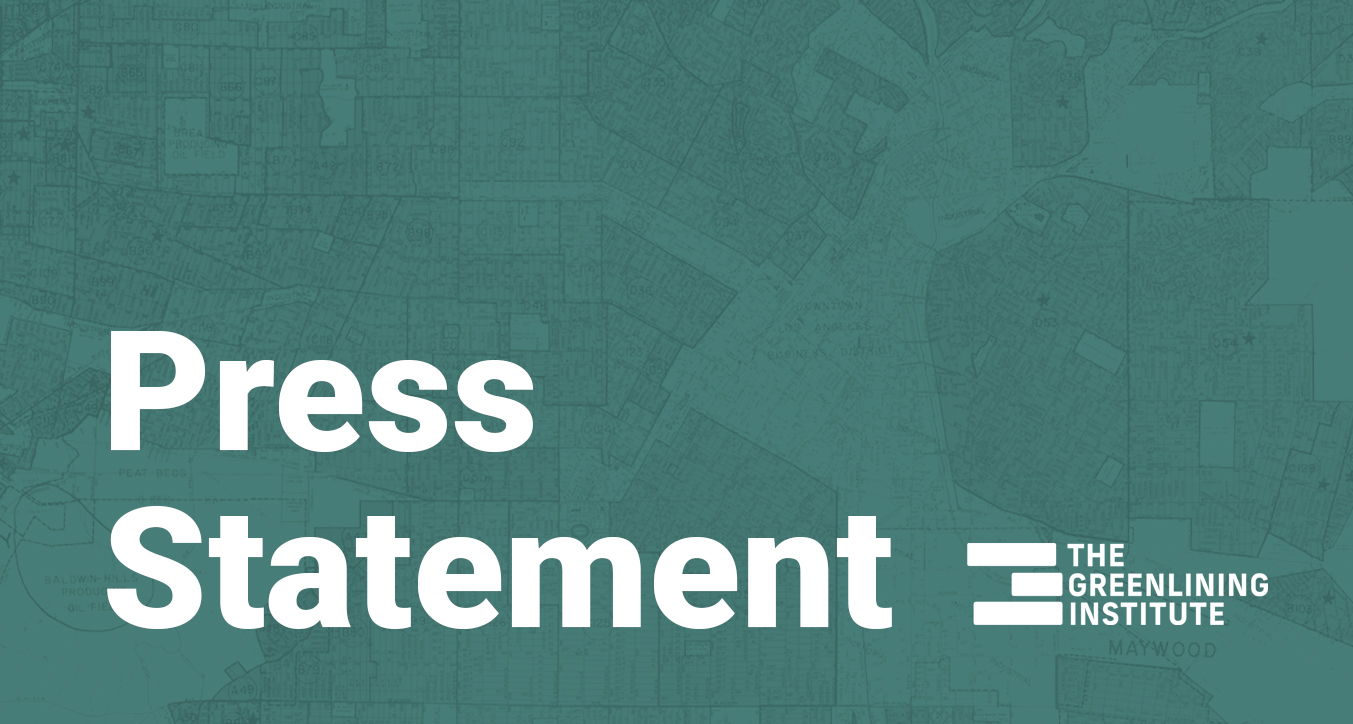Vulnerable Californians could lose power when utility protections expire. Will leaders act?

Media Contact
Danielle Bell
SENIOR PROGRAM MANAGER FOR MEDIA RELATIONS
media@greenlining.org danielle.bell@greenlining.orgBy Carmelita Miller
The Sacramento Bee
On Thursday, hundreds of thousands of Californians could have their power shut off.
Critical moratoriums on rental evictions and utility debt shut-offs will end if the state does nothing. Despite the significant steps taken by the governor, Legislature and California Public Utilities Commission in response to the pandemic, we are once again facing a wave of shut-offs that will disproportionately harm communities of color at the height of wildfire season.
The COVID-19 pandemic has devastated our communities and the economies of California, and it’s far from over. But despite a record state budget surplus, unpaid utility bills could leave hundreds of thousands of California families without power.
While the state’s economy has greatly improved, not everyone is reaping the benefits. COVID continues to exacerbate racial, economic and health disparities for our most vulnerable residents.
Many of those who have lost work and income during the pandemic were already carrying a huge financial burden, struggling to afford basic necessities. As of August, California’s unemployment rate stood at 7.5%, — still nearly double the pre-pandemic rate of 3.9% in January, 2020. Between May and July of this year, Black workers’ unemployment rate was twice the rate for white workers and was well above the already high rates that Asians and Latinos experienced.
These figures generally leave out the millions of workers who were struggling to receive unemployment benefits and protections before the pandemic, such as undocumented workers and people who work in agriculture, retail, and hospitality, plus many small business owners barely hanging on after unexpected expenses and shrinking sales.
These disparities are growing at an alarming rate while many pandemic benefits and protections expire. Households are now facing a waterfall of debts, and creditors are gearing up to collect. The Greenlining Institute and a coalition of service providers, grassroots activists and consumer advocates estimates that the accumulated customer debt on energy and water utility bills is over $2.7 billion — a figure that’s probably too low and still growing.
Existing relief is not enough and will not reach all households at risk of disconnection. The PUC enacted a moratorium on energy utility shutoffs for nonpayment that expires Sept. 30. Customers, many of whom have been essential workers throughout this pandemic, must either pay bills they can’t afford or lose their power.
Some progress has been made. Earlier this summer, legislators and Gov. Gavin Newsom passed $2 billion in water and energy utility debt relief, but the roll out of those critical funds has been slow, and funds have not yet been distributed equitably to families who need it most.
At the very least, these Californians need the moratorium on shut-offs extended through next March, when existing relief funds should be distributed.
The recall election was a clear mandate to reject the politics of fear and division and to boldly push for the vision of a Golden State where everyone — not just a privileged few — thrive. California has the money, and those in need are desperate. Newsom and the Legislature must extend the moratorium and provide debt relief now to hundreds of thousands of families terrified of having their power shut off.
This is not a time for timidity or half measures. With autumn here and colder weather upon us, we simply can’t leave millions of Californians without the ability to light and heat their homes. California must act now to protect the most vulnerable among us.
Carmelita Miller is senior director of climate equity at The Greenlining Institute.


